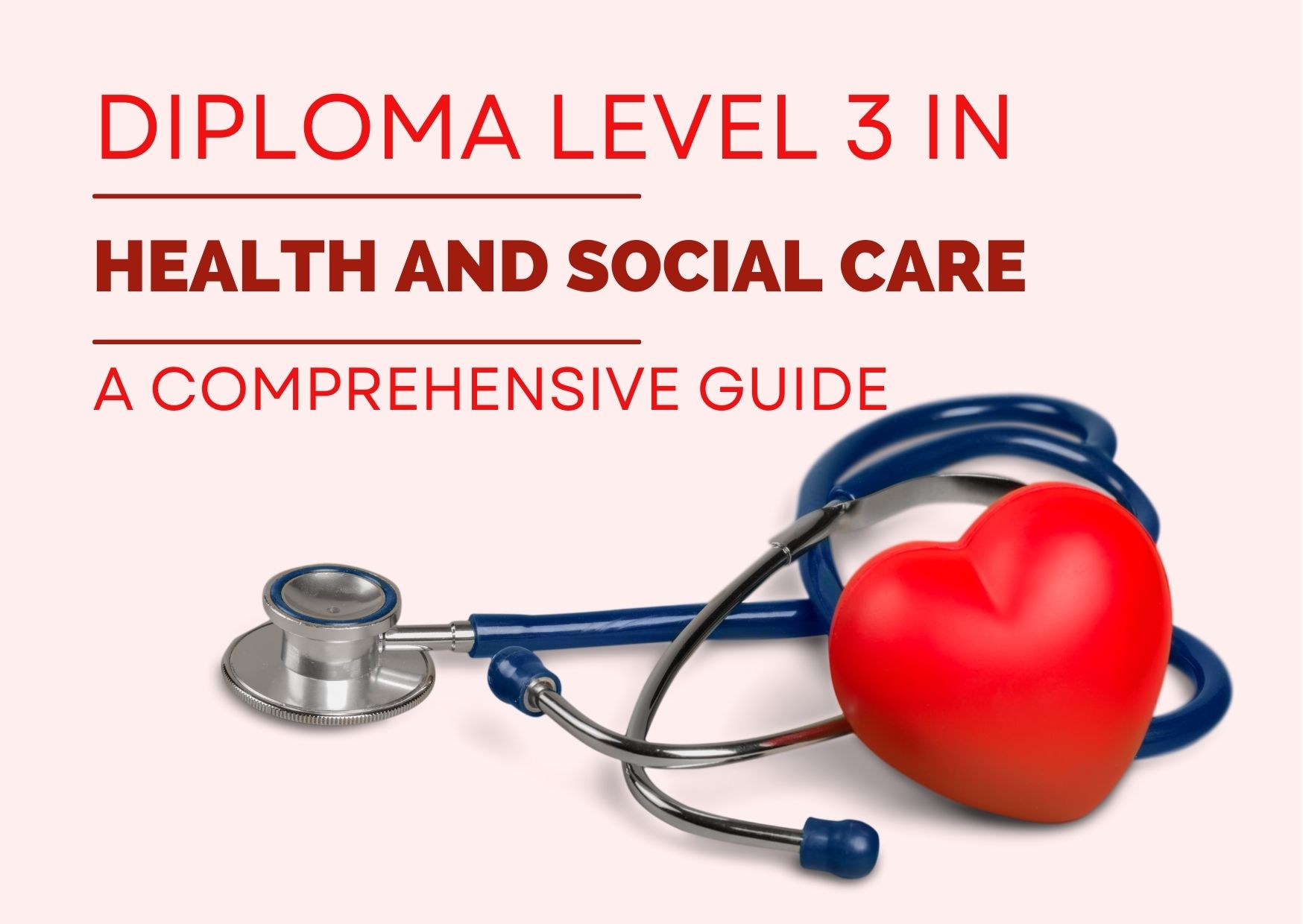If a job in health and social care is on your mind, you may be familiar with the NVQ Level 3 Health and Social Care and Diploma Level 3 in Health and Social Care qualification. These qualifications are highly valued in the industry and can lead to a variety of rewarding positions. But what are these needs exactly? What are the equivalents and how do they differ from one another? This essay will cover all the information you require regarding these credentials, including the Care Certificate, diversity in health and social care, and more.
What is NVQ Level 3 in Health and Social Care?
NVQ Level 3 Health and Social Care is the abbreviation for National Vocational Qualification at Level 3. Those who are currently working in the health and social care sector are the target audience for this work-based qualification. The primary objective of the NVQ Level 3 is to develop the knowledge and practical skills required to provide individuals with high-quality care in a range of settings, such as hospitals, assisted living facilities, and community care.
This certificate would be extremely beneficial to those working in senior care or managerial roles, such as care coordinators, senior care workers, or support workers. Among the numerous topics it addresses are safeguarding, communication, person-centered care, and promoting equity and inclusion.
What is NVQ Level 3 Equivalent To?
Many individuals ask themselves, “What is NVQ Level 3 equivalent to?” In the UK educational system, an NVQ Level 3 is the same as an A-Level. It has a Level 3 rating and is classified as an intermediate-level certification by the Regulated Qualifications Framework (RQF).
For those considering returning to school, NVQ Level 3 can also serve as a stepping stone to more advanced degrees, such as a Level 4 or Level 5 Diploma in Health and Social Care, or even a degree in social work or nursing.
Diploma Level 3 in Health and Social Care: An Overview
The Diploma Level 3 in Health and Social Care is another popular certificate in the industry. Similar to the NVQ Level 3, it is designed for people working in health and social care roles. However, the Diploma Level 3 is more academically focused, combining theoretical knowledge with practical application.
This certificate is ideal for anyone who want to gain real-world experience while learning more about health and social care ideas. It covers topics like preventing infections, maintaining health and safety, and assisting those with special needs.
What is the Care Certificate?
You may be familiar with the Care Certificate if you’re new to the health and social care field. All health and social care professionals must adhere to these guidelines in order to deliver safe, effective care. The Care Certificate addresses 15 important topics, such as:
- Recognizing your role
- Your individual growth
- Obligation of care
- Diversity and equality
- Protecting
- Basic life support
Before beginning an NVQ Level 3 or Diploma Level 3 qualification, the Care Certificate is frequently required. Before moving on to more complex positions, it guarantees that all carers have a strong foundation of knowledge and abilities.
What is Diversity in Health and Social Care?
Diversity in the context of health and social care refers to recognizing, valuing, and respecting individual differences. These differences can include things like age, gender, sexual orientation, religion, race, disability, and more. In the context of health and social care, fostering diversity is essential to delivering person-centered care.
Having a thorough understanding of what diversity in health and social care means can help care providers create an inclusive environment where everyone feels valued and respected. It also ensures that, regardless of a person’s history or circumstances, treatment is tailored to meet their unique needs.
Key Differences Between Diploma Level 3 and NVQ Level 3
Despite the fact that both the NVQ Level 3 Health and Social Care and the Diploma Level 3 in Health and Social Care are widely respected, there are several important differences between them:
Focus: While the NVQ Level 3 is more practical and work-based, the Diploma Level 3 combines theory and practice.
Assessment: The NVQ Level 3 is assessed by workplace observations and evidence collection, whereas the Diploma Level 3 may include written assignments and examinations.
Progression: Although either award can be used to pursue higher-level education, those who are interested in academic pathways might find the Diploma Level 3 more suitable.
Why Pursue a Level 3 Qualification in Health and Social Care?
Earning an NVQ Level 3 Health and Social Care or a Diploma Level 3 Health and Social Care will significantly increase your employment prospects. Here are some benefits:
Career Advancement: With these credentials, you can get senior or supervisory jobs in the business.
Development of Skills: You will gain vital skills in safety, communication, and person-centered care.
Acknowledgment: Both degrees are typically accepted by UK employers.
Further Education: They provide a solid foundation for pursuing specialized training or more advanced degrees.
Conclusion
Important knowledge and abilities for a successful career in the sector are provided by the NVQ Level 3 Health and Social Care and the Diploma Level 3 Health and Social Care. Understanding what the Care Certificate is, what diversity in health and social care is, and what NVQ Level 3 is equivalent to can help you make an informed decision about your career path.
Getting a Level 3 certificate can help you advance professionally and provide high-quality care to those in need. Thus, get started right away and explore the opportunities in the health and social care sector!







